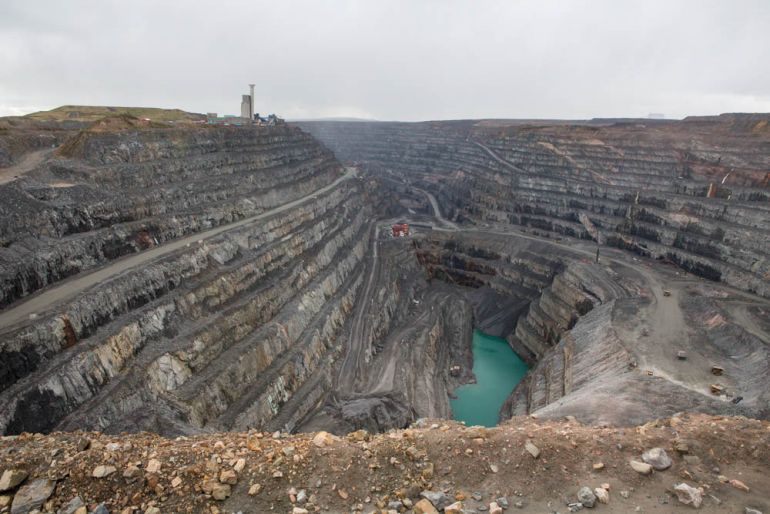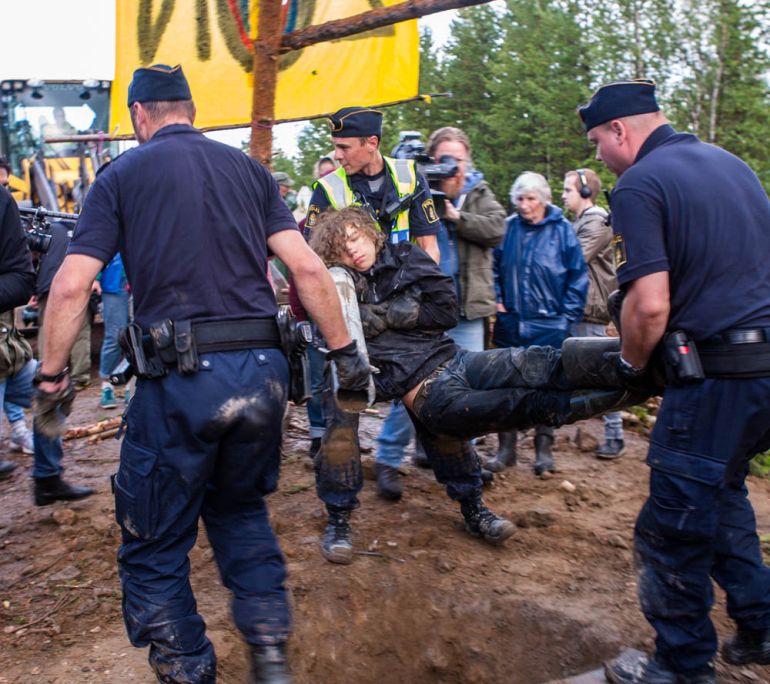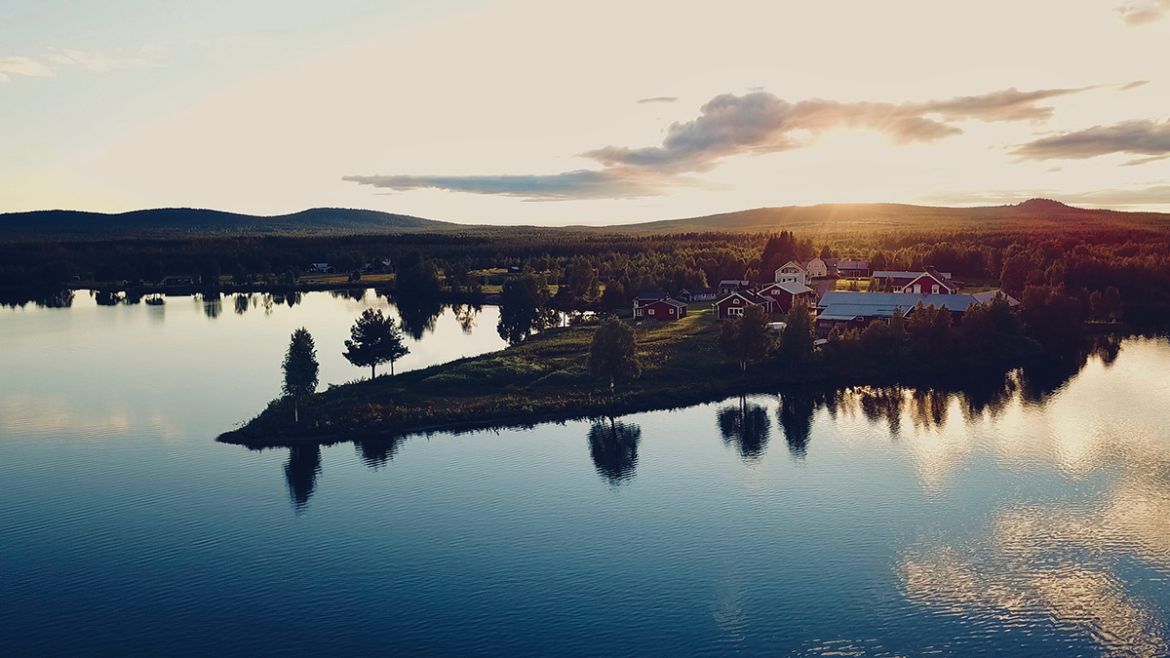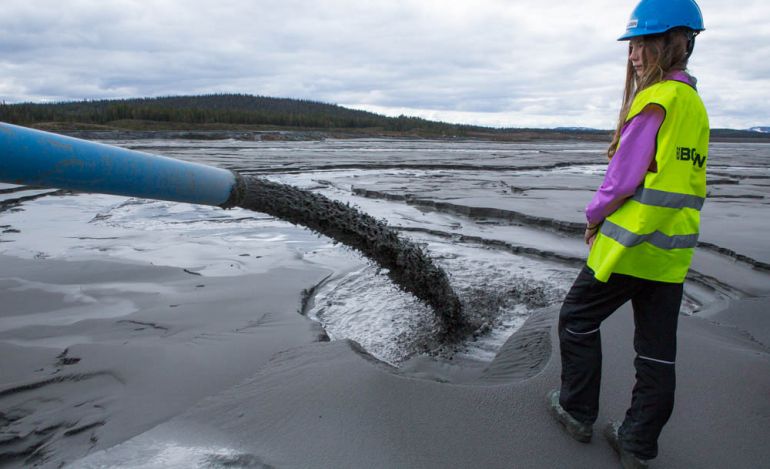In Pictures
‘The Klondike of ore mining’: Fighting for the Sami way of life
An indigenous photographer in Sweden documents the beauty of his homeland – and the threats it faces from mining.
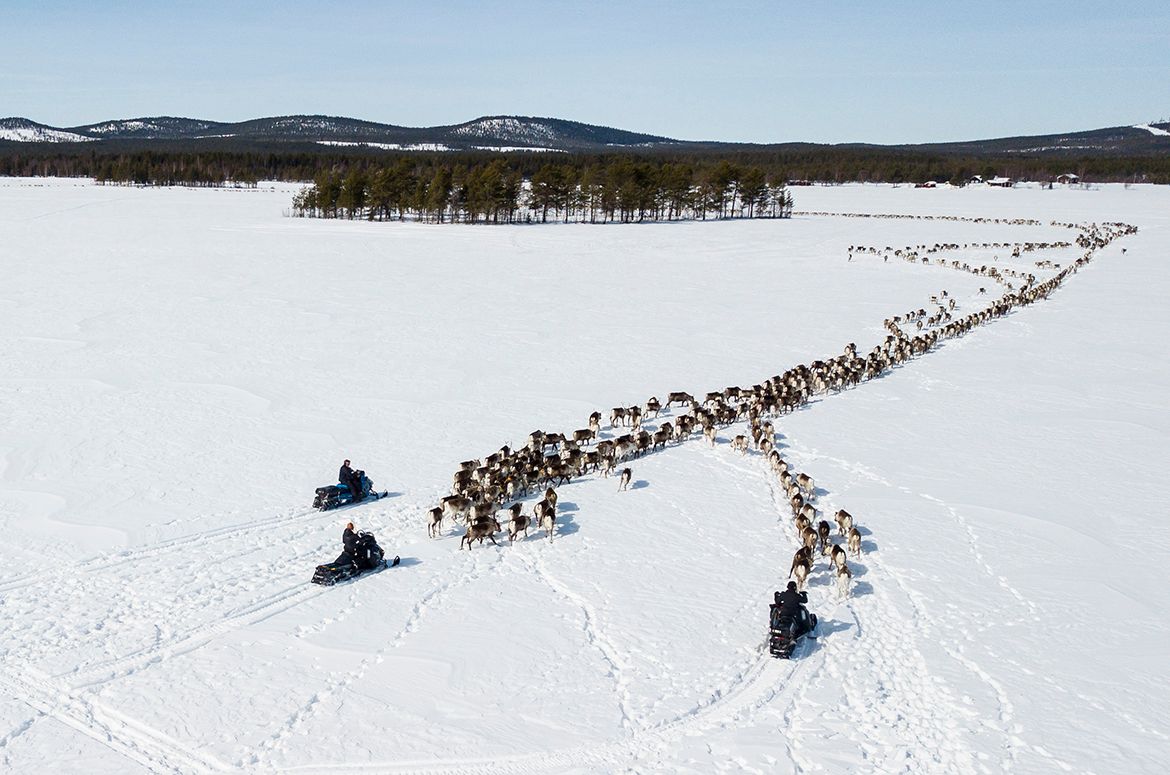
Tor Tuorda feels a strong connection to the countryside around his home, from the winding streams and pine forests to the birds in his backyard.
He lives in a town called Randijaur in Lapland, a northern region of Sweden that encompasses a world heritage site and the traditional lands of the indigenous Sami people.
The Sami have lived in Sweden’s northern region for millennia, first as fishers and hunters before developing reindeer herding as a means of livelihood.
As a nature photographer, Tor spends a lot of time outdoors – hunkering down on a float to photograph waterfowl or hiking around to take shots of the mountainous terrain.
His favourite place to hike is an old-growth forest north of the village of Kvikkjokk, where pine trees are hundreds of years old and the low mountains and lake are home to moose, reindeer, bears, wolverines, lynxes, and grouse.
“My … feelings for the area are about the same as when I first enter a cathedral,” he says. “Big and powerful.”
His family harvests much of their food from the land – with his children helping him fish on the nearby lake, as well as hunting and collecting berries and herbs.
“We live close to nature, and never buy fish, meat or berries in the shops,” he says. “The Sami land carries Sami history, memories and stories. All beings in nature teach the children respect and consideration. I gather all my power from nature. All that is important in this life is related to nature.”
Tor has been taking photographs of his surroundings for years, he does it out of love of the nature around him and out of a desire to document his home and the changes that threaten it.
Northern Sweden is home to dozens of Sami communities and tourists come to visit the arctic wilderness, but the land also attracts resource industries; the government is looking to expand metal mining, and timbering threatens old-growth forests.
In 2006, the British company Beowulf Mining plc was granted permission to begin exploring for an ore mine just 50km away from Jokkmokk. The plans divided the community: while it could create hundreds of jobs and help revitalise the town, whose population was in decline, it could also threaten wildlife and ruin the pasturelands of reindeer herders.
A large number of residents had wanted to see the mine go through, but the exploration project was mired in protests by other locals, Sami groups, and environmental activists.
Tor decided to join the fight against the mine, and reclaimed his family’s former Sami name – Tuorda – a move he says drew mixed reactions from Swedes and Sami people, many of whom believe that only those that herd reindeer can be considered Sami.
The plan to mine in the region has left Tor restless and frustrated, and determined to fight to save his home.

